Following the Audi A3 Best Compact Premium Car and the A4's Best Premium Car wins, a solid mix of retail and fleet puts Audi UK in good shape.
Almost a year after taking the helm of Audi UK’s fleet sales division, Tom Brennan is determined to secure the brand’s strength in the true fleet market.
The manufacturer’s former national contract hire and leasing manager replaced James Douglas, who was appointed head of sales for Volks-wagen Commercial Vehicles, last spring.
Since 2000, Audi UK has posted 13 annual sales records, with fleet sales playing its part, and celebrated a hat-trick of success at last year’s Fleet News Awards.
It was named fleet manufacturer of the year, the A3 was voted best compact premium and, for the second successive year, the A4 was crowned best premium car. “It’s been a good year,” says head of fleet sales, Brennan.
Overall, sales were fairly static last year, with 174,982 units registered, 2,322 fewer than were registered in 2016. However, it increased its share of the true fleet market, from 9.3% to 9.7%, despite a fall in volume, from 69,663 units to 68,591. It also reported a fall of almost 41% (2,859 units) in Motability, while rental was also down, by 886 units (-14.3%).
“Almost 80% of our sales come from retail and true fleet,” says Brennan. “If you compare that to elsewhere, that’s really very good. And, while our volume is slightly down year-on-year, which was planned, the introduction of Q2 and (other) models means we will be able to take the pressure off A3, A4 and A6.”
Responsible volumes have been key and Audi has kept downward pressure on rental and Motability registrations for the past two or three years.
“The past year is testament to that again, because we’ve got such a strong mix of retail and true fleet,” he says. “We look and we plan to make sure we’ve got the right cars for the right customers.”
The fleet market faces a number of challenges, whether from mounting air quality concerns or from tax changes.
Fleet News (FN): In terms of air quality, have you seen a shift in demand from diesel to petrol?
Tom Brennan (TB): From a fleet point of view, diesel is still attractive. You look at the wholelife costs, it still works. For now, it’s fine. It’s different in the retail space, but in the fleet market, diesel is still strong.
FN: A8, Q5 and A5 were among some of the new cars launched in 2017. This year, new arrivals will include A1, A6, Q3, Q8 and an all-electric SUV. What will appeal to the fleet market?
TB: We’ve got new A6 and we’ve just had a great year with A4 in true fleet. A3 is still our biggest car, but with A6 it’s a whole new car, taking styling from the A8.
A1 and Q3 are huge in fleet and we’ve had a great year in the sector with Q5. I also think Q7 provides us with a great opportunity. A lot of directors and small business owners really like that car.
FN: Have you had much fleet success with hybrids, the A3 E-tron and the Q7 E-tron?
TB: From a fleet perspective they’ve done fantastically well. We’ve got some customers with huge order banks for those cars and they’ve been strong for us since their inception.
FN: How do you rate the health of the company car market?
TB: We’re in a strong position, but the market is changing massively. Corporate is under pressure; you look at the leasing company volume and volume in corporate is declining.
The growth is coming from SME, retail, contract hire, brokers and personal contract hire. In the past two or three years, it has really changed.
Going forward, with increases in BIK (benefit-in-kind tax), there will be further pressure on the sector.
FN: How are you adapting your product line-up to meet the changes in company car taxation?
TB: We’ve got new E-tron coming at the end of 2018, and then in 2019 into 2020, you’ll see more electric vehicles, more hybrids, which will mean when we get to 2020, when the changes really kick-in, we will be ready and will have the cars for our customers.
The BIK won’t be punitive, which means customers won’t have to think ‘do I take the cash, because I can’t afford to be in the scheme’. By then, they will have a car from a BIK viewpoint that will meet their needs.
FN: Has the availability of hybrids such as the BMW 330e and the Mercedes-Benz C350e against A4, for example, put you at a disadvantage now?
TB: We’ve outperformed the competitors within that model in true fleet, which is great news for us. But, did it have an effect? Of course it does. However, over time, with product such as E-tron coming through, we will win back some of those orders.
FN: Do you think when WLTP replaces the NEDC value for company car tax in 2020, that could impact the fleet market?
TB: It’s the million-dollar question. I can’t answer that with any certainty right now. Our main focus over the past six months has been ensuring that we’ve got the right systems in place to manage the data through to the providers. As a group, we’re in a really good place.
Following a 12-month consultation with its dealer network, leasing partners and corporate customers, Audi UK has decided to adopt an agency model for its fleet sales.
It will bring the manufacturer in line with many other manufacturers, including other brands within the Volkswagen Group.
Brennan explains: “We currently give our network a volume and we give them a margin, and they have control over the routes to market.
“From April 1, we will take control of the routes to market, we will take control of the margins and we will pay dealers a handling fee for giving great customer service to our customers. They become our agents.”
Audi believes it makes sense to adopt this model when leasing companies and end-user fleets are already employing it with other manufacturers.
Furthermore, says Brennan, when Audi is almost the only manufacturer not using that model, it can cause complexity.
“If you look at the market and how it’s changing, there is more pressure on the fleet market, which means when you have dealers in control they have to compete against each other,” he explains.
“Competing against each other puts pressure on them, it puts pressure on their margin.
"This way, they will no longer be competing with each other, because we control the market and make sure from the network’s perspective that they’re in a really sustainable place going forward.”
In terms of a fleet focus in its dealer network, Audi has 150 business sales specialists across 116 sites. Keeping them invested, if corporate sales continue to come under pressure, is key, according to Brennan, especially with a growing SME market.
“We want these guys on the ground to go out into their local community and generate those sales, because that’s where the opportunity exists,” he says.
“By going to an agency model, it keeps them focused on the areas of fleet we really want them to focus on and, as importantly, it allows us to give better service to our leasing company partners and our end-user fleets.”
He continues: “We need them to be invested; we need those people on the ground. They will be the people delivering great customer service to our drivers.”
Transitioning to an agency model for fleet sales was among the first jobs for Brennan to get his teeth stuck into when he took the top job.
“It was a daunting task, because it’s a big change for the business,” he says. “It’s probably the biggest change we will have ever made.”




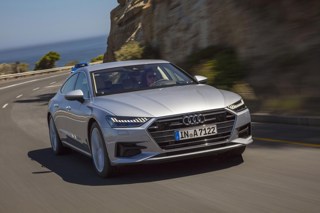
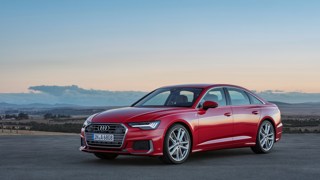
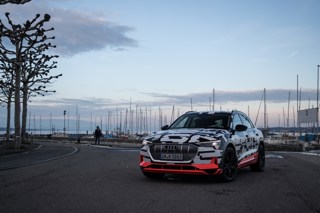
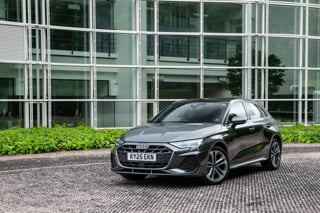
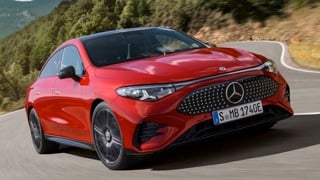












Login to comment
Comments
No comments have been made yet.